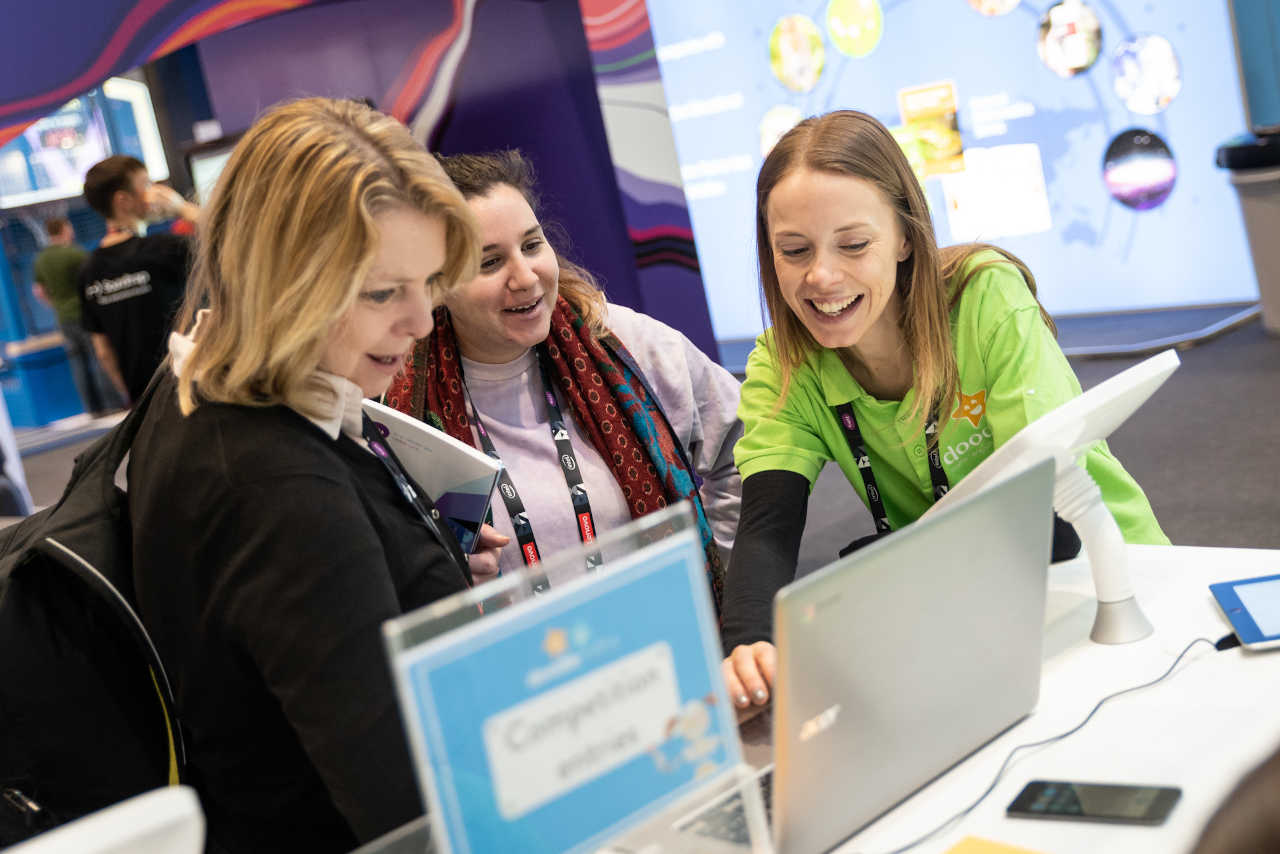Bett Daily News Roundup – Friday 25th January
The visionary Professor of Educational Technology headed Friday afternoon’s keynote lineup.

Tools and ideas to transform education. Sign up below.
You are now subscribed
Your newsletter sign-up was successful
Dr Sue Black OBE kicked it off in The Arena this morning with a talk on Overcoming Challenges, Connecting People and Empowering Others. From leaving home at 16 and having 3 kids byt the age of 23 to saving Bletchley Park with Stephen Fry, meeting Princess Anne, the Queen and Prince Charles (who gave her her knighthood), Dr Black has had an incredible life and career. Her programme #TechMums gives tech training to mums across the country and she is now Professor of Computer Science at The University of Durham. She says that anyone can learn to code - it’s just like learning to read or write!
Dame Darcey Bussell OBE, creator of Diverse Dance MIX (DDMIX) got Bett moving at her talk with the whole audience on their feet joining her in some moves. Dame Darcey passionately believes that kids are meant to move and we’re letting them down if we don’t help them. With today’s low levels of participation in physical activity it’s important to harness not only team sports but inclusive, non competitive physical activity that matches the stimulation provided by the digital world.
The Edtech 50 - Celebrating Ambition; Inspiring Educators took place in the Arena. The panel, moderated by Ty Goddard, co-founder of The Education Foundation, consisted of Corrine Latham, Principal of Seaview Primary School and Nursery Unit, Belfast; Zaitoon Bukhari from Witton Park Academy, Blackburn; Claire Jones, Deputy Head of Layton Primary School, Blackpool and Kirsty Grundy, Principal and Trust Primary Director of Shireland Collegiate Academy. Ty started off by saying that we are seeing much more communication through tech for schools, teachers and learners. All four leaders had a lot to say about the use of technology at their schools. At Seaview they don’t see tech as an add-on but a necessity and they use Apple, Android, Google and Microsoft devices. At Witton Park Academy they believe technology is just a tool and that the real impact comes from how these tools are used to enhance teaching and learning. At Layton Primary School they start teaching coding at age 4 and incorporate coding language (if x then y) into everyday speech. At Shireland Collegiate Academy, they are looking to develop the next generation of change makers.
The Arena Keynote Highlight - Sugata Mitra on The Future of Learning
The visionary Professor of Educational Technology headed Friday afternoon’s keynote lineup. To a packed auditorium, he introduced his thinking around "The School in the Cloud." The approach is a combination of two tested practices: First, ‘The Granny Cloud’ - where volunteer educators connect with children around the world to give them opportunities to experience worlds far removed from their own as well as encouragement and admiration that is proven to help them thrive, and secondly, self-learning environments, where by using the internet students are able to find answers self-sufficiently. What they found was that schools in the cloud improve comprehension (in general, not just literacy), communication (the ability to demonstrate that you have comprehended) and computing (ability to solve a problem using the internet) in children.
Mitra’s most striking remarks drew a sharp focus on the current schooling system, the curriculum and in particular, the way that student’s knowledge and understanding is assessed - something he argued was firmly rooted in the past. He suggested that the use of internet and collaboration simply must be allowed during assessment and posed the question: "If we are using it 24/7, why is it that your child should not be able to just that too?" Summarised as a 'senseless and obsolete" system that we don’t need any more, Mitra instead proposed a future curriculum structured around the questions that we don’t know the answers to in order to foster the ability in children to solve problems "just in time" i.e. to find accurate and current answers to questions.
His parting thoughts on the future of learning drew us to encourage greater emphasis on fantasy rather than limited methods of looking at the future that are currently used in schools.
Tools and ideas to transform education. Sign up below.
